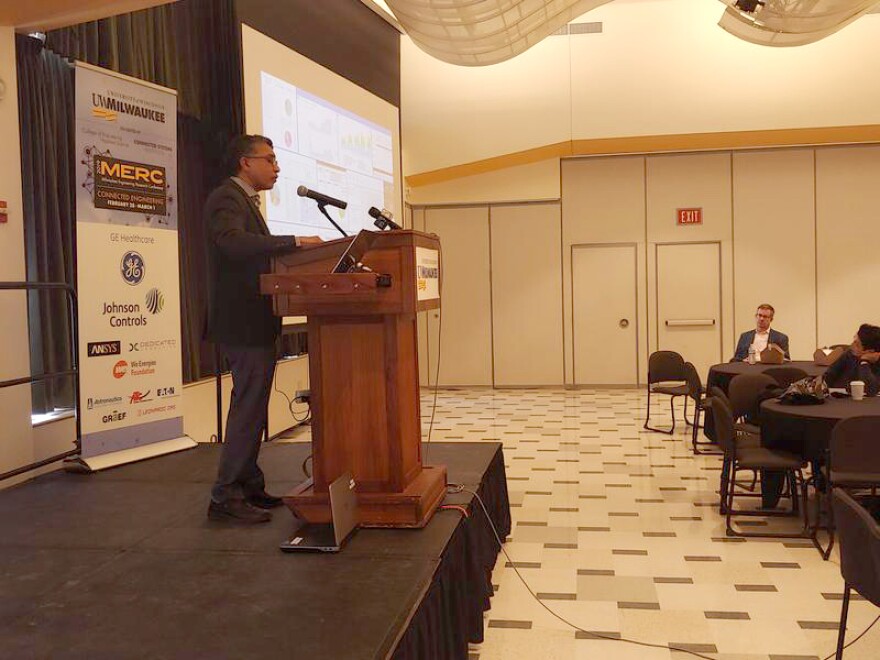A Microsoft executive who recently spoke in Milwaukee says his company favors an effort to inform consumers about data collection, and hopes the approach is adopted worldwide.
Here’s the background: when you use a search engine to read an article, consider a purchase, or for other reasons, there's a good chance data is being gathered on you.
Raghu Ramakrishnan, chief technology officer for Microsoft's Data and Artificial Intelligence division, says that a few years ago, his company's advertising team was tasked with building user profiles.
"So they can show ads that are most likely to resonate with you. And for those user profiles, among other things, they look at things like the web logs for people who browse [the engine] MSN,” Ramakrishnan explains to the audience at the UWM engineering conference.

The efforts by some companies to collect data eventually prompted the European Union to pass GDPR, or the General Data Protection Regulation. It gives consumers more ability to find out what's being collected and potential say-so over how it's used.
But some data collection firms aren't happy with the European law, according to UW-Milwaukee School of Information Studies Professor Michael Zimmer.
“There's concern that not being able to collect the information as easily might slow down innovation, and might limit the types of products or services companies like Google or Uber or Twitter might be able to offer," Zimmer says.
But Zimmer questions whether that's come true, and he favors regulations like Europe's. Zimmer argues the aim is to respect the dignity of individuals, “In that they should have more awareness and more control over how their data is being collected."
Microsoft executives like Ramakrishnan hope that governments across the globe can agree on standards.
"Because companies like Microsoft absolutely want to do the right thing. But the trick is doing it in the right way so that the burden of compliance is reasonable, right? And, the more reasonable it is, the more quickly and the more companies that can comply," Ramakrishnan says.
In the U.S., there are few signs that Congress and the White House are ready to move on legislation similar to that passed by the European Union. But California has a data disclosure law taking effect next year, and that state’s governor has even raised the idea of a data dividend.
That's where consumers would get a share of the money firms make off of the public's internet use.

Do you have a question about innovation in Wisconsin that you'd like WUWM's Chuck Quirmbach to explore? Submit it below.
_



